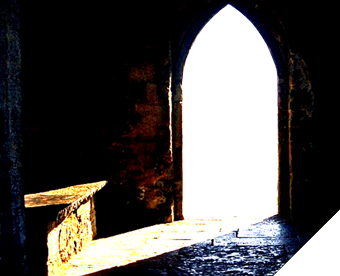Letter to Bishops
Below is a template letter that can be used to write to your Bishop about the disasterous RSE course in Catholic Schools and the impact of the 2018 Education Bill currently being discussed in the Oireachtas.
Letter to Bishops
Dear Bishop____________
We would like to draw your attention to some changes that are being proposed for Relationships and Sexuality Education for our schools.
1. Provision of Objective Sex Education Bill 2018.
Bill that is currently at the 3rd stage in the Dáil concerning the elimination of the ethos of Catholic schools, both primary and secondary.
Here is the Bill: https://data.oireachtas.ie/ie/oireachtas/bill/2018/34/eng/initiated/b3418d.pdf
Here’s a summary of the bill:
1. Schools and parents can uphold the ethos of the school except when it comes to relationships and sex education (RSE).
2. The board of management can uphold the ethos of the school except when it comes to RSE.
3. The Minister For Education when prescribing a curriculum for RSE must include:
a) Consent to sexual activity
b) Different types of sexuality
c) Methods of contraception
d) Termination of pregnancy
4. The Minister for Education when carrying out his function can uphold the ethos of the school except when it comes to RSE.
The Bill is currently at the 3rd stage; this means a committee, the Joint Committee on Education and Skills, will now discuss, debate and make amendments to the Bill. This committee has already had private meetings, public meetings start 22nd Jan and can be viewed here: https://www.oireachtas.ie/en/press-centre/press-releases/20181022-education-and-skills-committee-to-examine-sexual-consent-classes-in-universities/
All transcripts of debates in the Dáil can be viewed here:http://https://www.oireachtas.ie/en/bills/bill/2018/34/?tab=debates
They are interesting to read, especially comments on introducing specific details of school curriculum into legislation.
Information on how bills pass can be seen here: https://www.oireachtas.ie/en/visit-and-learn/how-parliament-works/how-laws-are-made/
The Committee have published a report in January 2019 calling for changes to be made to the Education Act so that ethos will no longer be a barrier to the delivery of the RSE curriculum. See "Findings and Recommendations", page 26+, but especially point 7 https://data.oireachtas.ie/ie/oireachtas/committee/dail/32/joint_committee_on_education_and_skills/reports/2019/2019-01-29_report-on-relationships-and-sexuality-education_en.pdf?fbclid=IwAR1zduEktH4UHa0omD6gickilJPicpPJOuc8R9fpeUt9XFX1SZzpmbzz3Z4
The committee call for the inclusion of the following topics in RSE:
· LGBT relationships
· LGBT specific sexual health issues
· Gender identity and the spectrums thereof.
The Committee also recognises a consensus from witnesses around the need for more education on pornography and abortion in schools.
2. The NCCA review of RSE in schools.
The NCCA were asked to do a major review in April 2018 by the then Minister of Education, Richard Bruton. Their research paper, published in November 2018, makes for scary reading: https://www.ncca.ie/media/3781/relationships-and-sexuality-education-rse-in-primary-and-post-primary-irish-schools-a-research-paper.pdf
It calls for a Holistic Sex Education approach, which may sound plausible but has, as its primary focus, "sexuality as a...source of satisfaction and pleasure" (page 23). The paper explains that this approach "doesn't aim to change behaviour. Rather its focus is on behaviour preparation or development." This is problematic when the behaviour is bad and needs to be challenged! (See page 25). Some of the research used in this paper suggests that "parents' approach to sex education is 'future and consequence oriented' which falls short of the holistic model advocated by WHO". Of course parents look to the future and the consequence of risky behaviour when it comes to their children! This is a natural instinct and one that protects and nourishes children every day. This is not a bad thing! (See page 38).
The research paper identified the influence of the Catholic Church as affecting the quality of sexuality education in schools on an international basis (see page 43).
As a result of this paper being published there are calls for a radical overhaul of our RSE program, calls for extreme issues to be discussed, which include "Pornography Literacy" and even Inspectors who will check on the children's learning after the explicit lessons are given.
Understandably, as parents, we are very concerned about the effect of this bill, if passed, and the NCCA review, on the well-being of our children in our Catholic schools.
We want to ask you to use your position to prevent this from going through into our Catholic schools.
We believe it is your duty to protect the Catholic ethos in our schools so that the truth and beauty of Church teaching may perfuse through ALL aspects of teaching and learning in those Catholic schools.
It is very worrying that outside groups are already being welcomed into some Catholic schools and are not respecting the Church’s teaching on sexuality but teaching something contrary. It is now even more worrying that education which is contrary to Church teaching and harmful to our children, could be made law and enforced upon our Catholic schools, whether delivered by an outside agent or not.
We are asking you to uphold our God-given rights as parents to teach these matters to our children.
The school teaching cannot be in direct opposition to what Christian parents are trying to teach their children at home. The Church’s teaching cannot be undermined by political ideologies and deference given to political correctness of the day.
Below are some quotes from Church documents which outline the importance of our duty as parents and of your duty as Bishop to support us in our endeavours.
“By nature parents have a right to the training of their children, but with this added duty that the education and instruction of the child be in accord with the end for which by God's blessing it was begotten. Therefore it is the duty of parents to make every effort to prevent any invasion of their rights in this matter, and to make absolutely sure that the education of their children remain under their own control in keeping with their Christian duty, and above all to refuse to send them to those schools in which there is danger of imbibing the deadly poison of impiety." Pius XI (Divini Illius Magistri, para 35, 1929)
“the Church has ever protected and defended these rights, a fact proved by the special confidence which parents have in Catholic schools” Pius XI (Divini Illius Magistri, para 38, 1929)
“It is paternal instinct, given by God, that thus turns with confidence to the Church, certain of finding in her the protection of family rights, thereby illustrating that harmony with which God has ordered all things” Pius XI (Divini Illius Magistri, para 39, 1929)
THE PONTIFICAL COUNCIL FOR THE FAMILY: THE TRUTH AND MEANING OF HUMAN SEXUALITY
Guidelines for Education within the Family: http://www.vatican.va/roman_curia/pontifical_councils/family/documents/rc_pc_family_doc_08121995_human-sexuality_en.html
43. The Pope insists upon the fact that this holds especially with regard to sexuality: "Sex education, which is a basic right and duty of parents, must always be carried out under their attentive guidance, whether at home or in educational centres chosen and controlled by them. In this regard, the Church reaffirms the law of subsidiarity, which the school is bound to observe when it cooperates in sex education, by entering into the same spirit that animates the parents".
LEARNING STAGES: Children's Principal Stages of Development: 1. The Years of Innocence
78. It can be said that a child is in the stage described in John Paul II's words as "the years of innocence" from about five years of age until puberty — the beginning of which can be set at the first signs of changes in the boy or girl's body (the visible effect of an increased production of sexual hormones). This period of tranquility and serenity must never be disturbed by unnecessary information about sex. During those years, before any physical sexual development is evident, it is normal for the child's interests to turn to other aspects of life. The rudimentary instinctive sexuality of very small children has disappeared. Boys and girls of this age are not particularly interested in sexual problems, and they prefer to associate with children of their own sex. So as not to disturb this important natural phase of growth, parents will recognize that prudent formation in chaste love during this period should be indirect, in preparation for puberty, when direct information will be necessary.
CONCLUSION: Solidarity with Parents
148. In fulfilling a ministry of love to their own children, parents should enjoy the support and cooperation of the other members of the Church. The rights of parents must be recognized, protected and maintained, not only to ensure solid formation of children and young people, but also to guarantee the right order of cooperation and collaboration between parents and those who can help them in their task. Likewise, in parishes or apostolates, clergy and religious should support and encourage parents in striving to form their own children. In their turn, parents should remember that the family is not the only or exclusive formative community. Thus they should cultivate a cordial and active relationship with other persons who can help them, while never forgetting their own inalienable rights.
We implore you to help us at this difficult time in Ireland.
Yours faithfully,





